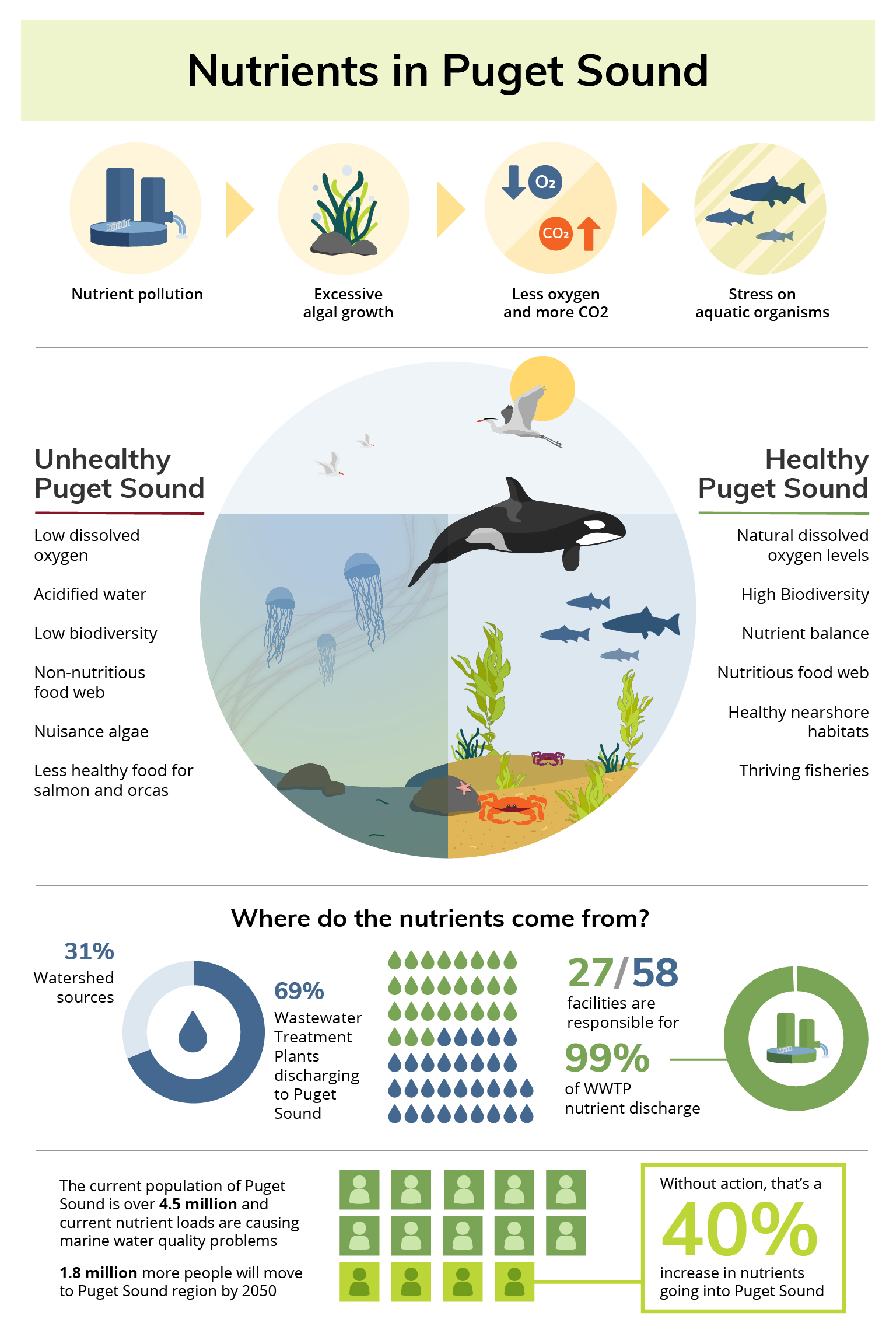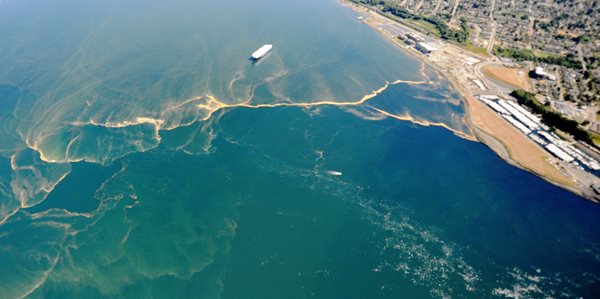One of the main reasons the health of Puget Sound continues to decline is an overwhelming amount of nutrient pollution. To reduce the flow of this pollution into Puget Sound, the Department of Ecology is proposing a new permit for 58 municipal wastewater treatment plants.
The largest source of nutrient pollution is coming from human waste. As the region continues to grow rapidly, even more nutrient pollution flows through wastewater treatment plants and directly into Puget Sound.
Most wastewater treatment plants in the area do not have technology in place to remove nutrients. The excess nutrients cause a domino effect in the ecosystem, threatening the entire foodweb. It reduces the amount of oxygen in the water that fish need to survive, leading to dead zones.
Ecology’s new permit will address this problem head-on, by requiring wastewater treatment plants to reduce the nutrients going into Puget Sound.
“We cannot ignore what science and common sense are telling us: with more people living in Puget Sound, we have more nutrients going into the water,” said Vince McGowan, Ecology’s Water Quality Program Manager. “Wastewater treatment plants are the gatekeepers for nutrients and the solution to this problem. Upgrading these facilities takes smart planning and significant investment, which is why we need this permit now, so the work to restore Puget Sound gets underway.”
Draft permit requirements
The requirements in the permit reflect feedback Ecology received during advisory committee meetings and comments on the early conceptual draft of the permit conditions in spring 2021.
Ecology proposes to split municipal wastewater treatment plants in Puget Sound into two categories, with different requirements based on the amount of nitrogen the facility discharges. About half the municipal wastewater treatment plants in Puget Sound are responsible for 99% of the nitrogen discharges. These facilities will have different requirements from the facilities that contribute less than 1% of the nitrogen.
For the first five years of the permit, Ecology proposes that facilities:
- Monitor wastewater for nutrient reductions, and collect data to support potential “water quality trading” among facilities.
- Optimize current treatment processes to remove as much nitrogen as possible.
- Plan for future facility upgrades to control nutrients.
For the 27 facilities discharging 99% of the nutrients, the proposal also includes an ‘action level’ that, if exceeded, will require corrective action to reduce nutrient discharges.
When planning investments to control and reduce nutrient pollution, facilities will be required to identify overburdened communities – areas where vulnerable populations face combined, multiple environmental harms and health impacts. Facilities will also be required to evaluate alternative rate structures to minimize the financial impact of increased sewer rates on these communities. Additional environmental justice requirements include identifying enhancements to commercial and recreational opportunities that would occur from treatment improvements.
Ecology will continue supporting wastewater treatment plants in this work through grants and loans, including a new grant program during the first permit cycle.
Providing feedback and next steps
Ecology is accepting feedback on the draft permit and SEPA documents from June 16 to Aug. 16, 2021 (updated on July 14 to reflect comment period extension). These documents, all other related materials, and information on how to comment are available on the permit webpage. Ecology is holding two virtual workshops and public hearings to provide more information about the permit and an opportunity for verbal comments:
- Tuesday, July 20, at 9:30 a.m. Join webex
- Wednesday, July 21, at 5:30 p.m. Join webex
After reviewing the comments, and making any necessary revisions, Ecology anticipates making a final decision on the permit this fall.
Algae blooms are one of the signs of nutrient pollution in Puget Sound.



